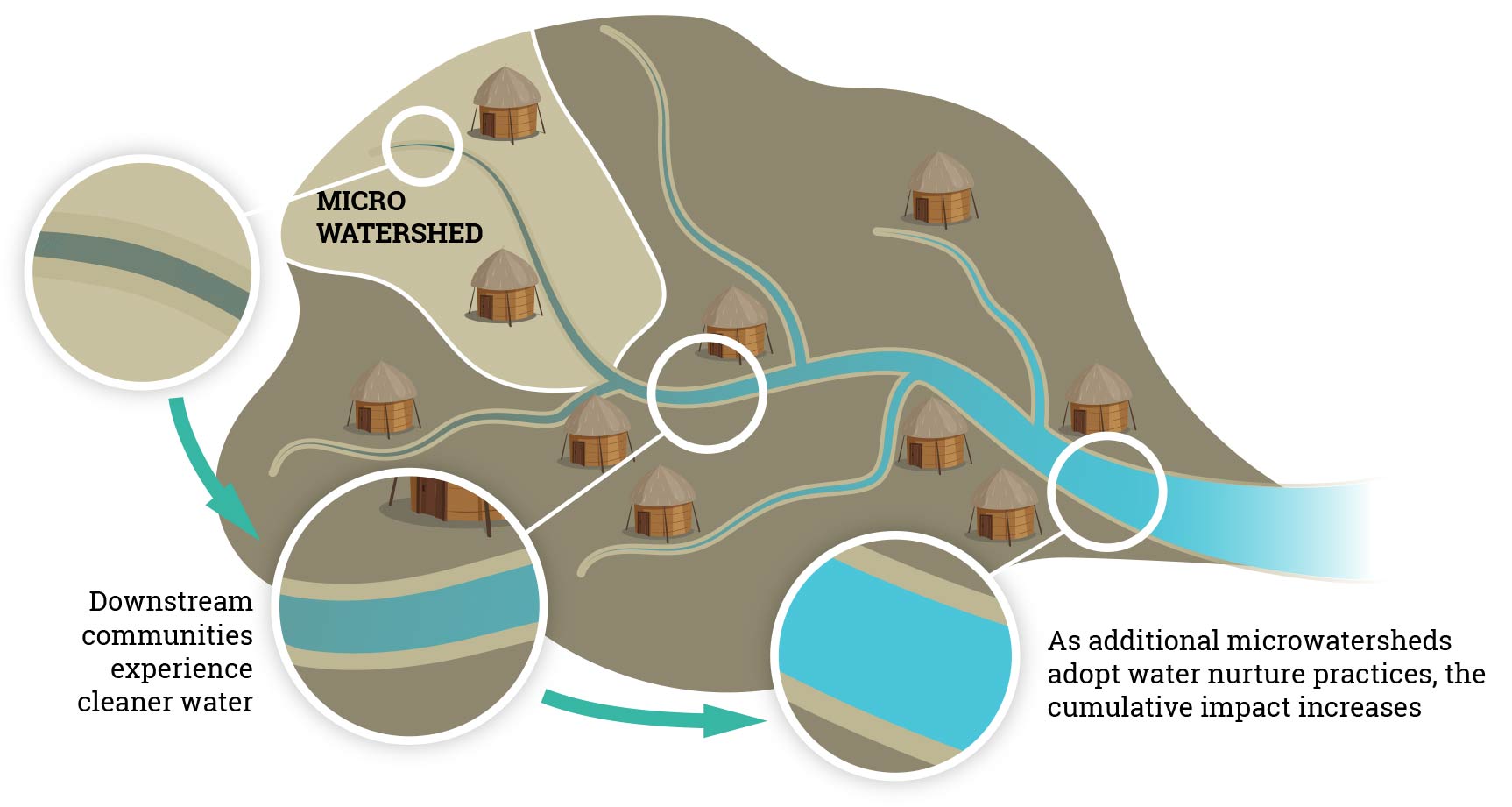THE SWEETWATER APPROACH
THE SWEETWATER APPROACH
How We Are Different
We Are Holistic
The efforts of many development organizations working with water are centered on reducing water contaminants at the point of use. Examples of this include water filters, disinfectant pills, and UV treatments. Some organizations bypass polluted surface water and dig wells or install rain-capture systems. All of these efforts, when applied with wisdom, are needful. The aim of Sweetwater is to supplement, enhance, and provide scientific support for these efforts…but also to take clean water development to the watershed scale.
We endeavor to mitigate pollution in three primary places…
When pollution is prevented from entering surface or groundwater in the first place, when pollution in a river is treated prior to reaching the water jug, then the effectiveness of filters is enhanced, well water is cleaner, and children can recreate in rivers with reduced fear of disease.
Our holistic approach is also manifested in our MICROWATERSHED STRATEGY that builds on the cumulative impacts of small-scale integrative watershed management. Top-down government programs are typically the only programs with enough money and authority to enact sweeping changes to resource management in entire watersheds. Rarely do these programs engender warm feelings between watershed stakeholders and the government. Rarely are they sustainable.
Rather than trying to resolve in one program all the multi-spectrum causes of water degradation in a large watershed, we focus on the efforts of small, family-based communities that surround the various tributaries feeding the mainstem river, reservoir, or aquifer. Big rivers get their water from small rivers that are formed by even smaller streams. The microwatersheds of headwater tributaries are usually farmed by a small number of families who are already accustomed to negotiating water rights among themselves. They know the natural history of their slice of watershed better than anyone. If these headwater families adjust their water management practices it might not have a significant impact on the mainstem river which is still fed by other dirty tributaries.
However, as neighboring headwater families implement best management practices, the cumulative impact on the water quality of their downstream neighbors can be dramatic. Not only will the headwater families enjoy cleaner water but their interactions with downstream communities will likely be more peaceful and productive.
Whiskey is for drinking. Water is for Fighting.
– Mark Twain (At least according to legend)
We Empower People to Use Locally Available Resources
We believe that God has infused His wondrous creation with solutions to all manner of conundrums. No research is conducted at Sweetwater without seeking the Creator’s face in prayer, trusting that if He can make springs erupt from desert rocks then He can surely provide miracles through the tool of science to make bitter water sweet. Science has never created anything. Science is a God-given tool that engineers – professional and amateur – have used to rework existing materials into items that enhance quality of life.
At Sweetwater we talk to the Maker of the tool before using it and trust Him to make us aware of how to use the natural renewable resources of the community to alleviate their water stress. In the deserts of Mauritania we might only have scant rain, sand, sun, and human determination. But if presented to God these elements become five loaves of bread and two fish in the hands of One who makes feasts for thousands from offerings made in faith.
We Enhance Efficient Use of Philanthropic Resources
Once a problem is identified, we will canvas our network to see if communities elsewhere on the globe are facing similar problems that could be aided by Sweetwater’s research. If three sites want the same research conducted, the three communities can pool their money to fund the research. Say there are communities in Sierra Leone, Khartoum, and Panama City that all see potential for using Moringa oleifera powder as a water clarifier but they aren’t sure how much of the powder is required to maximize its effectiveness for settling suspended particles.
Rather than each community conducting its own research, the three partner communities can share the cost for Sweetwater to conduct the research. Their cost becomes a third of what it would have cost each community separately. Many hands make light work. Sweetwater would then further enhance the value of the pooled funds by announcing to its network and crowd-funding sites an opportunity to match funds with the three communities, thereby giving donors the privilege of contributing to the solution of a specific water problem. Donors, if they choose, can have their names forever linked to a particular strategy that impacted dozens, thousands, perhaps even millions of people. In short, Sweetwater extends the value of the money given from each contributor by consolidating the research, drawing in funding from myriad other sources in Sweetwater’s network, and promoting the results to our global network.
We Reduce Risk of Failure and Cynicism
If the research hits some bumps along the way it won’t happen in the sight of locals who are often predisposed to cynicism towards new-fangled ideas proposed by imaginative foreigners.
We Require Skin In The Game
During a visit to one of the most materially-poor nations on earth, I spoke with a well driller. He said he had installed 70 water wells in water-stressed communities in his country and only one of them continued to operate longer than several years – and it was the only one paid for by those dependent on the well. The other 69 had been purchased by foreign donors. Many water relief organizations focus their resources on alleviating water stress by digging wells, providing filters, teaching hygiene, and in other ways handing something down to the people. Sweetwater will do the research on sustainable methods of pollution mitigation and pass the knowledge on to local leaders who can apply it and hone it to their needs.
At Sweetwater we believe it is the responsibility of local communities to make the clean water happen. We don’t start by identifying what a community lacks, we start with what they have. Wealth and poverty are not simply monetary. Thus, our clients must contribute resources, financial or otherwise, towards the final water strategy so that ownership of the project is clearly theirs. This approach breeds dignity and self-reliance. It releases materially-poor communities from a sense of dependence on outsiders to provide for their daily needs.


